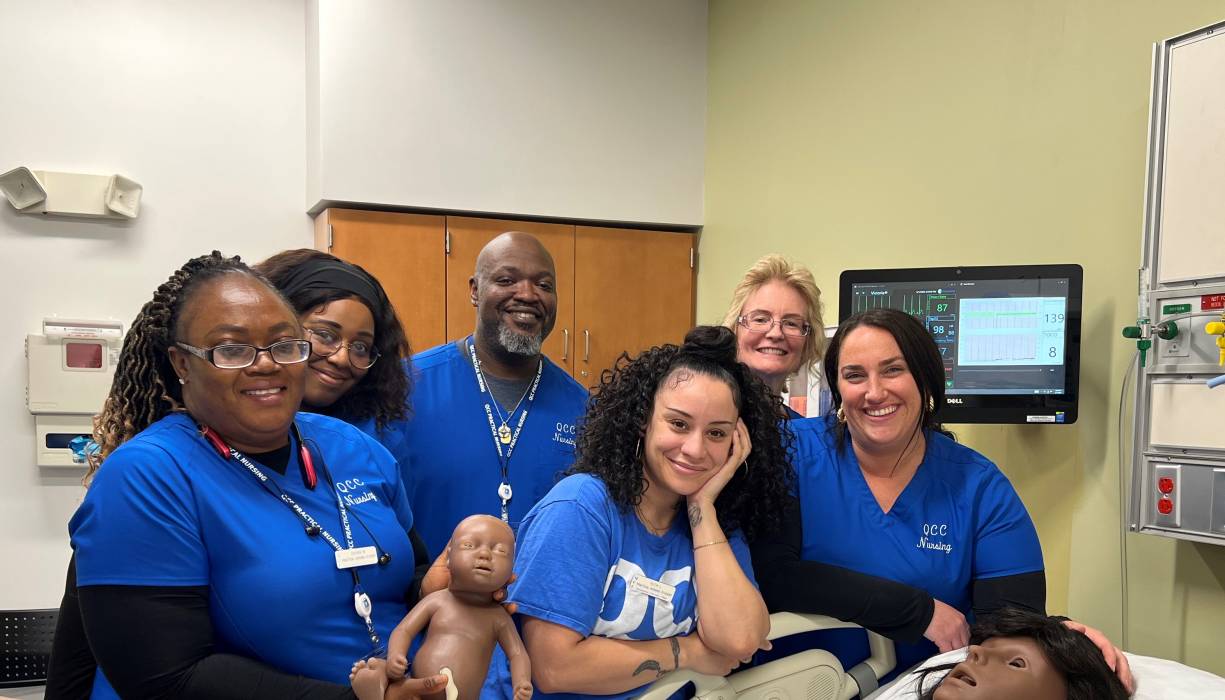You are here
Simulation Equipment Making a Difference for QCC Nursing Student
Recently updated equipment in the college’s nursing labs is giving students hands-on experience that prepares them for a career in nursing. The latest state-of-the-art equipment features simulation manikins such as a birthing manikin that delivers a baby, interacts with students through speech and movement and displays vital signs. The equipment was purchased through funding from a $499,815 Skills Capital Grant Program that was awarded to QCC in 2022.
"QCC is immensely grateful for the unwavering support we have received from the Commonwealth of Massachusetts in securing the funding for our updated nursing lab equipment,” said Dean of the School of Healthcare Pat Schmohl. “Without their invaluable assistance, we would not have been able to provide our students with such transformative learning experiences. It not only enhances their knowledge and skills, but also instills a deep sense of confidence as they prepare for their future careers in nursing. We are proud to offer an environment that closely replicates real-world patient care settings.”
Ruth Lopez, a nursing student who hopes to work at Saint Vincent Hospital when she graduates, said that besides having engaging professors that motivate her, the simulation equipment adds another level of learning.
“It’s one thing to read and take a quiz about what you learned, but to be hands-on and practice the skills was an ‘a-ha’ moment for me. I know what it looks like and how it feels now,” Lopez said.
Nurse Education Laboratory Coordinator Keara Holmes went through a lengthy process of research and product demonstration to find the best equipment options available that meet the needs of the students and their future employers.
“The up-to-date equipment will help our current and incoming students acquire hands-on skills in nursing simulation labs that reflect current patient care settings found in the community,” Holmes said. “Through the use of simulation, nursing faculty facilitate learning and help foster critical thinking skills in our students, so they are prepared to enter the nursing profession.”
QCC nursing programs prepare approximately 450 students each year for careers in the local healthcare industry.
For more information on QCC's nursing program contact Assistant Dean of School of Healthcare Shanan Stratis at sstratis [at] qcc.mass.edu.

